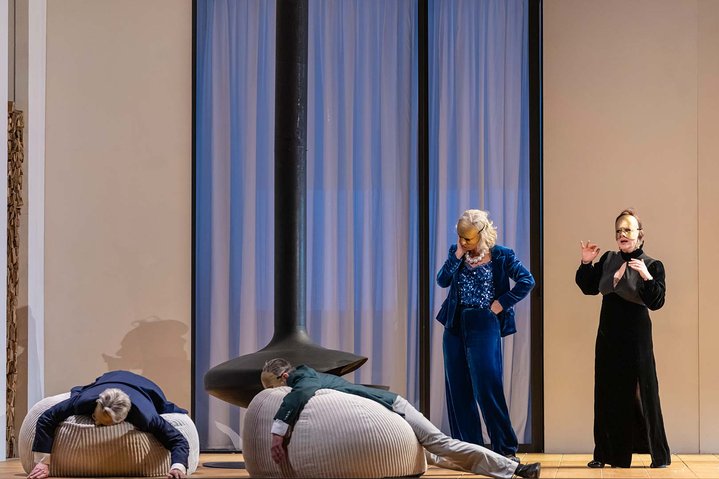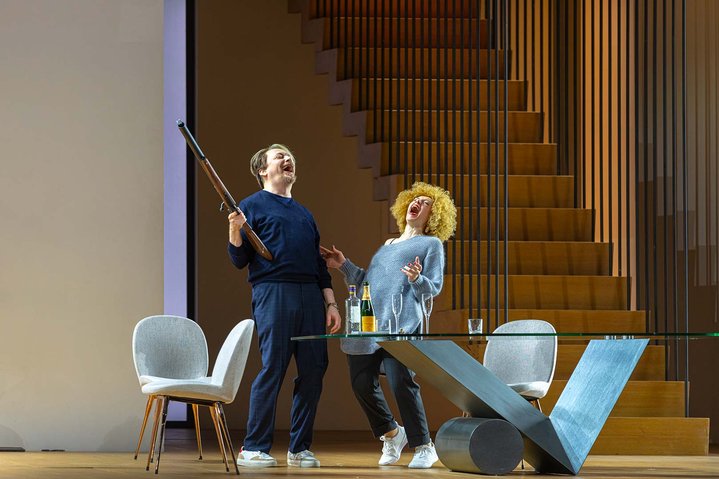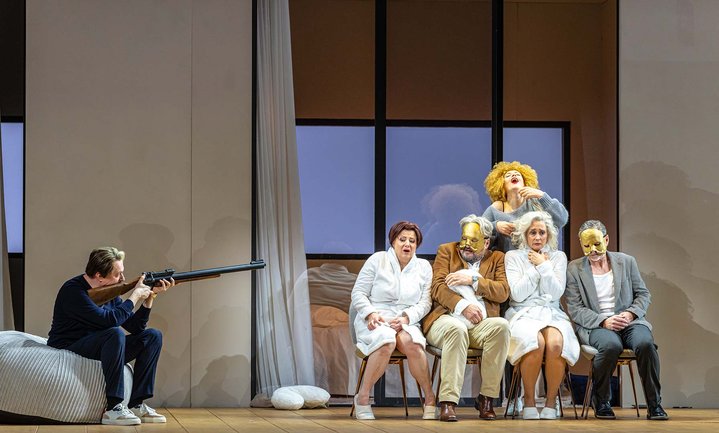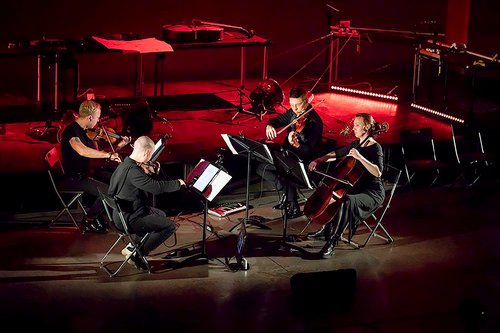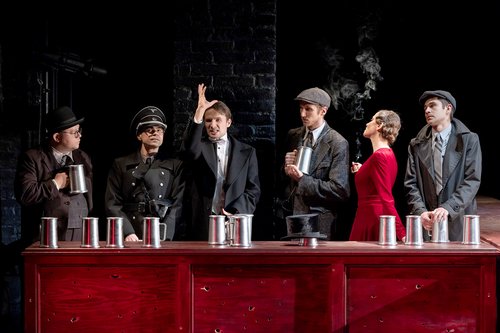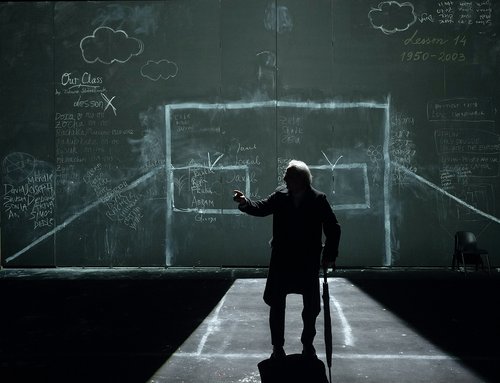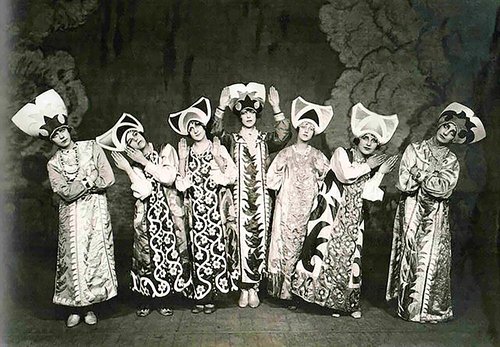Is ‘Così Fan Tutte’ by Dmitri Tcherniakov a statement?
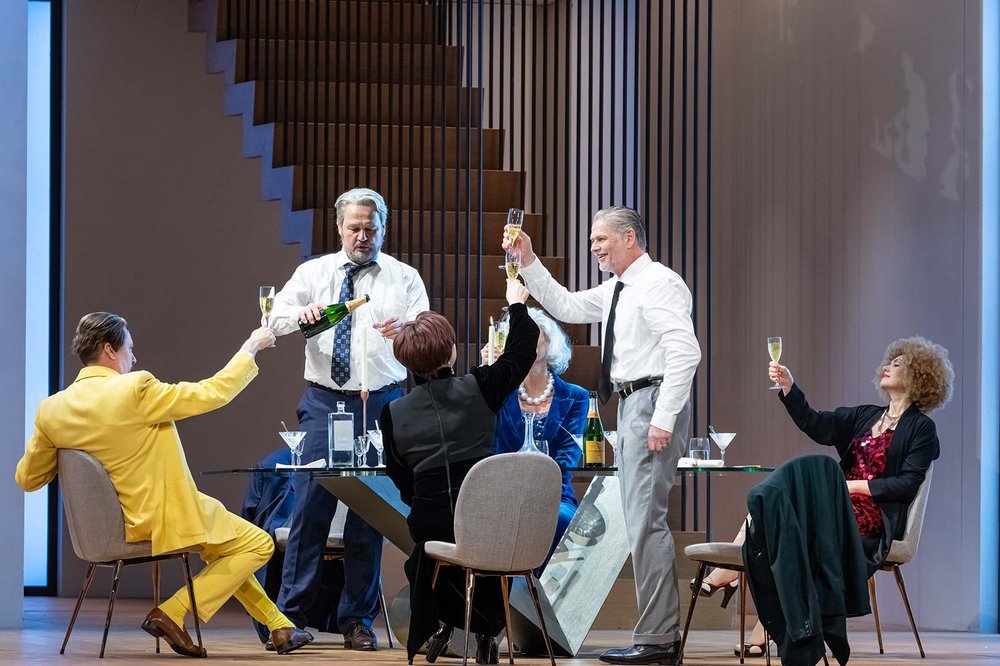
Così fan tutte. Théâtre du Châtelet. Paris, 2024. Courtesy of Thomas Amouroux
A brilliant and subversive version of Mozart’s comic masterpiece by the renowned Moscow-born opera director Dmitri Tcherniakov that premiered in July at Aix-en-Provence theatre festival, is dividing opinion at the Châtelet theatre in Paris.
The curtain call of the premiere performance of Mozart’s opera directed by Dmitri Tcherniakov at Théâtre du Châtelet in Paris on 2nd February was punctuated with boos but the members of the chorus taking their final bows did not seem in the least bit surprised, they had been expecting it after their first performance at the international music festival in Aix-en-Provence last summer. The auditorium itself was half empty, resulting in that game of musical chairs while concertgoers make a bid for better seats. The empty seats showed that the public has already made up its mind about Tcherniakov’s latest more bitter than sweet creation of Mozart’s otherwise lighthearted romp.
‘Così Fan Tutte’ is the story of two soldiers who test the loyalty of their fiancées. Pretending to leave for war, they return in disguise to playfully seduce one another’s partner. Once the ruse is discovered, a reconciliation follows. In Tcherniakov’s vision, however, this otherwise amusing drama loses the usual playful intrigue and is bereft of any humour. Set in a high-tech nouveau riche house, the stage is sterile. Sliding glass windows with curtains separate two rooms at the back from the main action which takes place centre stage, while at the front of the stage there is a table is placed at the right. This arrangement allows two sides of the story to be told, the lively tale of the two sisters, Fiordiligi and Dorabella, seduced by their brothers-in-law in disguise, culminating in the reunion of the protagonists. Trained as an architect, Tcherniakov always designs the space himself and here this visual division orchestrating the duality at the heart of ‘Così Fan Tutte’ is typically Tcherniakovean. Many of his inventions have since become points of reference such as the large dining table in his production of ‘Eugene Onegin’ at the Bolshoi which transforms the story into a continuous feast.
For the spectator, the obvious point of entrance into the story is the house itself, which belongs to Don Alfonso. In the original version which premiered in Vienna in 1790, Don Alfonso is an old philosopher, but in Tcherniakov’s version he is rich, shriveled up and frustrated, finding pleasure in playing with the lives of others. One of the production’s main innovations is the age of its performers. In a review in Le Monde written by Marie-Aude Roux in which she describes the production as ‘brilliant and subversive’, she gave particular attention to the birth dates of the opera singers: Fiordiligi played by Agneta Eichenholz was born in 1971, Dorabella by Claudia Mahnke in 1968, Ferrando by Rainer Trost in 1966, and Guglielmo by Russell Braun in 1965. Although most have long been established as Mozartians, voices change over time and here you cannot fail to notice the lower pitch of these older amorous couples looking for frivolous fun.
Nothing in ‘Così Fan Tutte’ is real, and so Tcherniakov emphasizes that even Guglielmo and Ferrando’s disguises are purely symbolical. Their golden masks are often removed and placed at their hip, perhaps suggesting the impossibility of covering the emptiness behind the protagonists. All throughout the action, everyone is aware of the ruse but they still choose to play along with it.
It is a performance which is more cinematic than operatic. Towards the end, Don Alfonso turns a gun on the couples, forcing them to sign their marriage contracts. Everything has turned flat and disappointing. One might suggest that hidden within what is the surface of a prank which has gone wrong is a witty and blunt critique of a frustrated society trapped by a misanthrope, in this case Don Alfonso. For audiences today, the empty chairs show it is perhaps a lesson too painful to witness.
Così fan tutte
Théâtre du Châtelet
Paris, France
2 – 22 February, 2024






